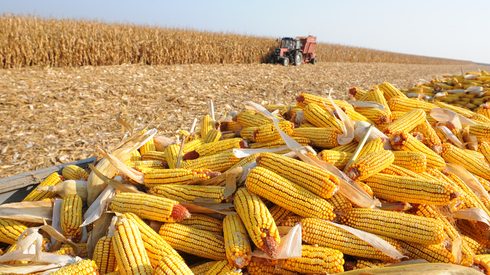Canada’s new marketing year has got underway, with the country looking to put behind it the horror show of previous years after the impact of extreme heat, heavy rains and turbulent international relations dogged recent campaigns.
Ryan Riese, the national director of agriculture for the country’s biggest bank, RBC, talked to Fastmarkets about some of the issues ahead.
Outlook for canola
A surge in fertilizer prices led Canadian farmers to reduce the acreage planted with canola this year, curbing output even as prices surged because of the disruptions caused by the Russian invasion of Ukraine and Indonesia’s ban on palm oil exports.
Riese said that farmers that went ahead with their planting were happy with their decision and any downturn in production would be passing.
“In western Canada, Manitoba, Saskatchewan and Alberta, canola is a big crop and like all things, farmers will try to plant according to where they see the best return on their investment. It is a pretty standard part of the crop rotation in western Canada. It grows well, and the hybrids that they have, perform very, very well,” according to Riese.
“Those that did plant it are happy because prices reached all-time highs. It is a major crop and will remain so in Canada for a long, long time,” he added.
Outlook for wheat
Canada appears to have missed out on the issues with high-protein wheat that have plagued the Russian, Ukrainian and French crops, according to Riese, who said he has heard of no issues with domestic production.
“We have a long track record in Canada of producing high-quality wheats and different varieties of wheat for different markets. By and large, we are producing a very quality product,” he said.
Canadian farmers have not seen any advantage from global warming so far and there is no guarantee that the country’s food producers will gain from climate change, according to Riese.
“There are those that say as the global temperatures increase, just given our geographic location, that it could improve, or extend our growing year. There are certain areas of the country, I’ll use western Canada as an example, where you just don’t have as many growing days as you would in the United States, for instance, where Iowa and some of those large crop-producing states have more days to produce more,” Riese said.
“With climate change, there are obviously things that are going to be detrimental, and there will be things that may open up some opportunities, but, as a bank, we’re very focused on doing our part being part to be a broader solution, be a good global citizen, and reduce emissions across sectors whether that’s agriculture or other areas. It’s all about us doing our part,” he added.
“If there are other areas where (global warming) is going to be detrimental, Canada could ultimately be in a better position, especially with our natural resources, and our access to fresh water, our lakes. We are in a good place,” Riese said.
Canadian wheat futures
Riese also had thoughts on the launch of the new CME-backed Canada wheat future, saying that market participants are happy using Chicago, Kansas City and Minneapolis wheat contracts for risk management and have no need for a local contract.
“The global markets are usually based off what the US markets are doing, your global goal posts,” Riese said in an interview.
The CME Group introduced a Canadian Wheat futures contract based on the Platts CWRS 13.5% protein FOB Vancouver on June 22, joining CME’s well-established Kansas City hard red winter wheat and Chicago soft red winter wheat contracts and the red spring wheat futures that are traded on the Minneapolis Grain Exchange.
“I think it works as it does today. Pricing is understood as it has been for years because this is the way it has always been done. The hog market does the same; they are all based on CME-type prices. Maybe one day in the future, there’s more of a Canadian market, but I think it works,” Riese said.
Canadian producers “know it, it’s the way it has been, and one day it may change, but it works as it is and as long as you know how it works, you can plan for it,” Riese added.
Keep up to date with the latest grains and oilseeds news, price trends and forecasts by visiting Fastmarkets Agriculture.





